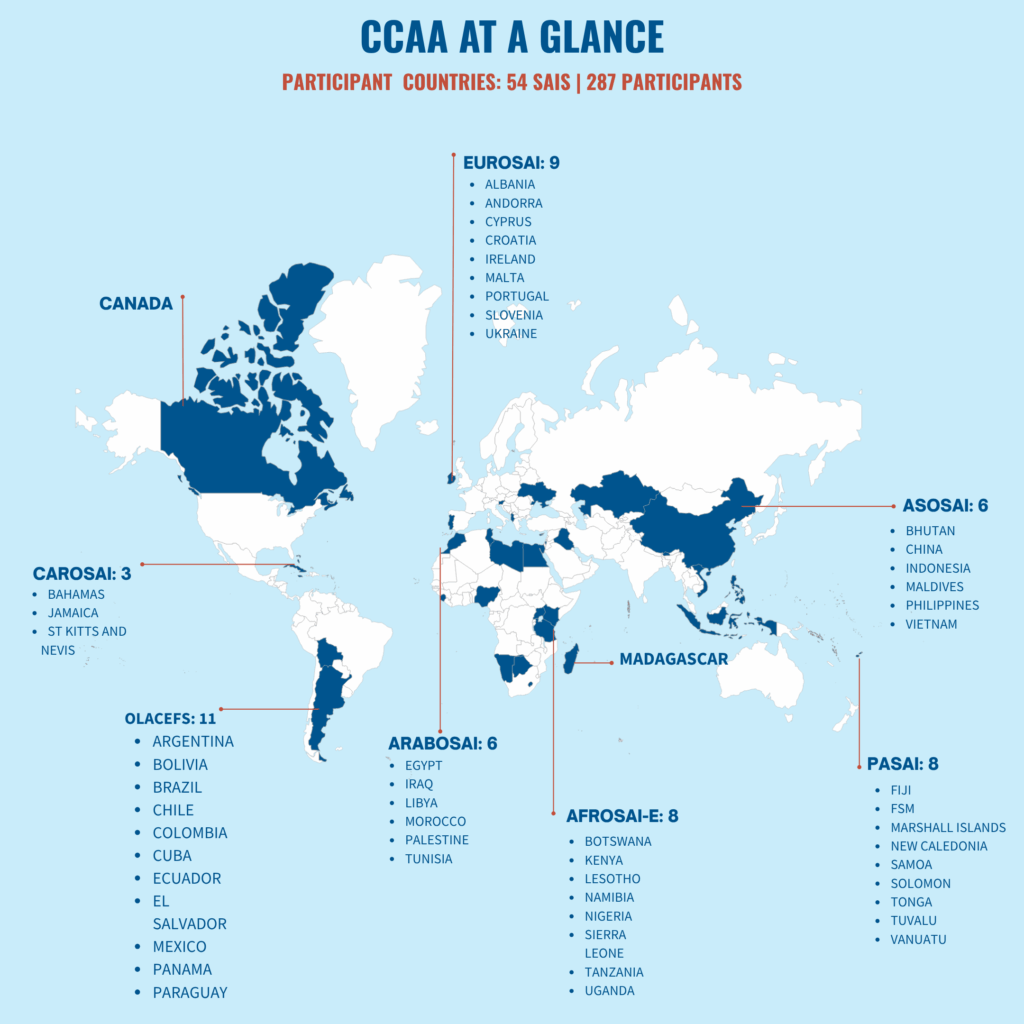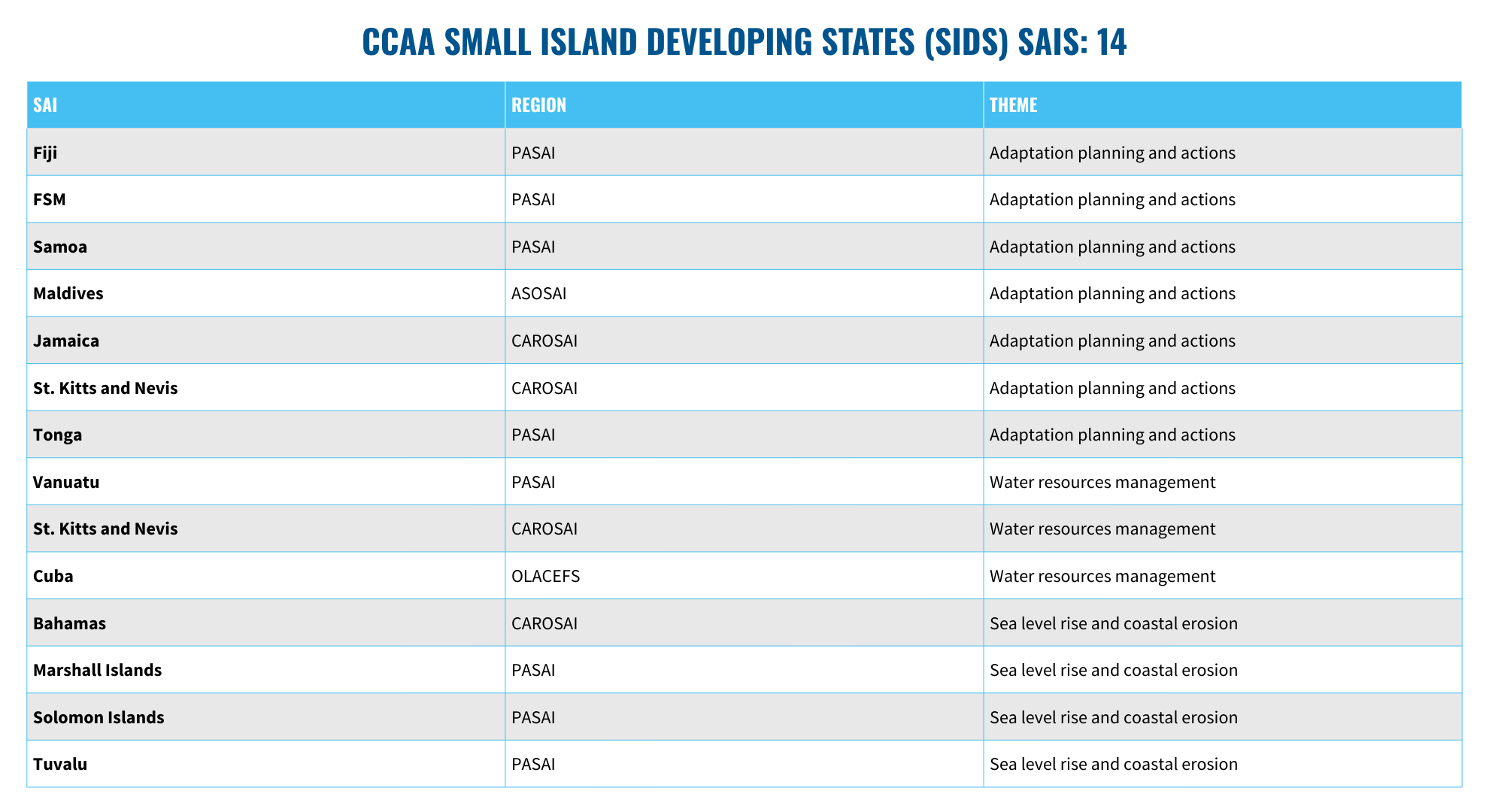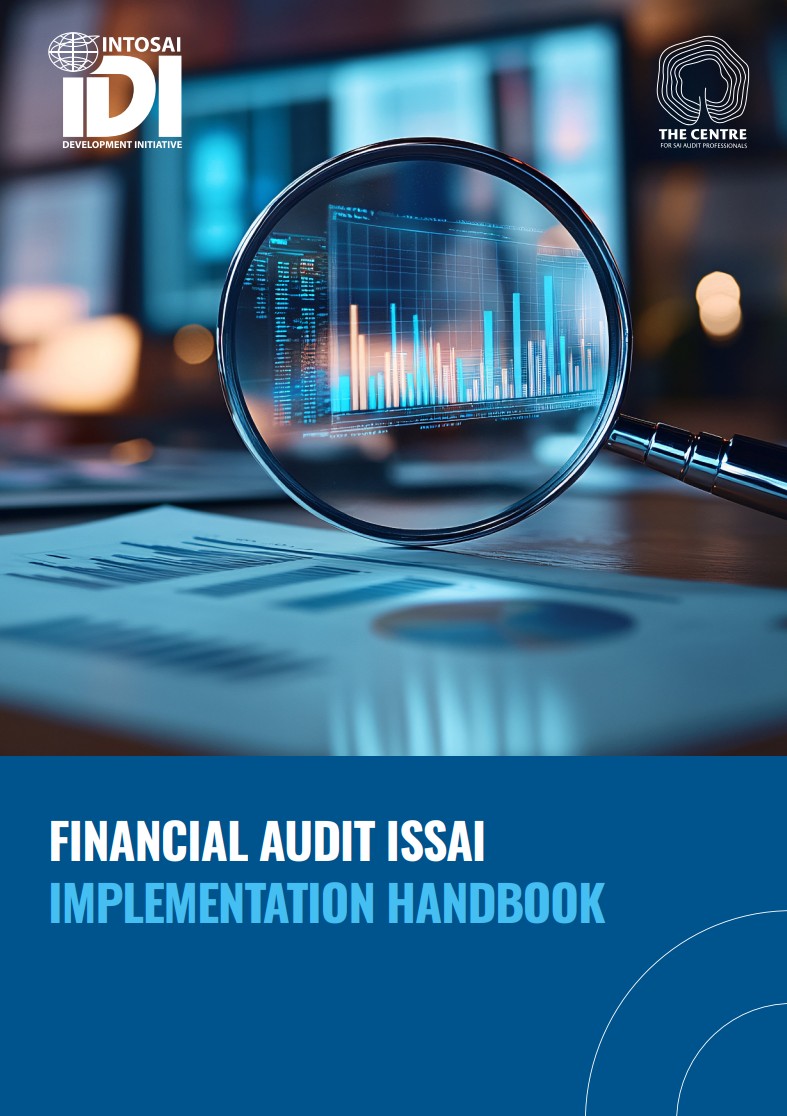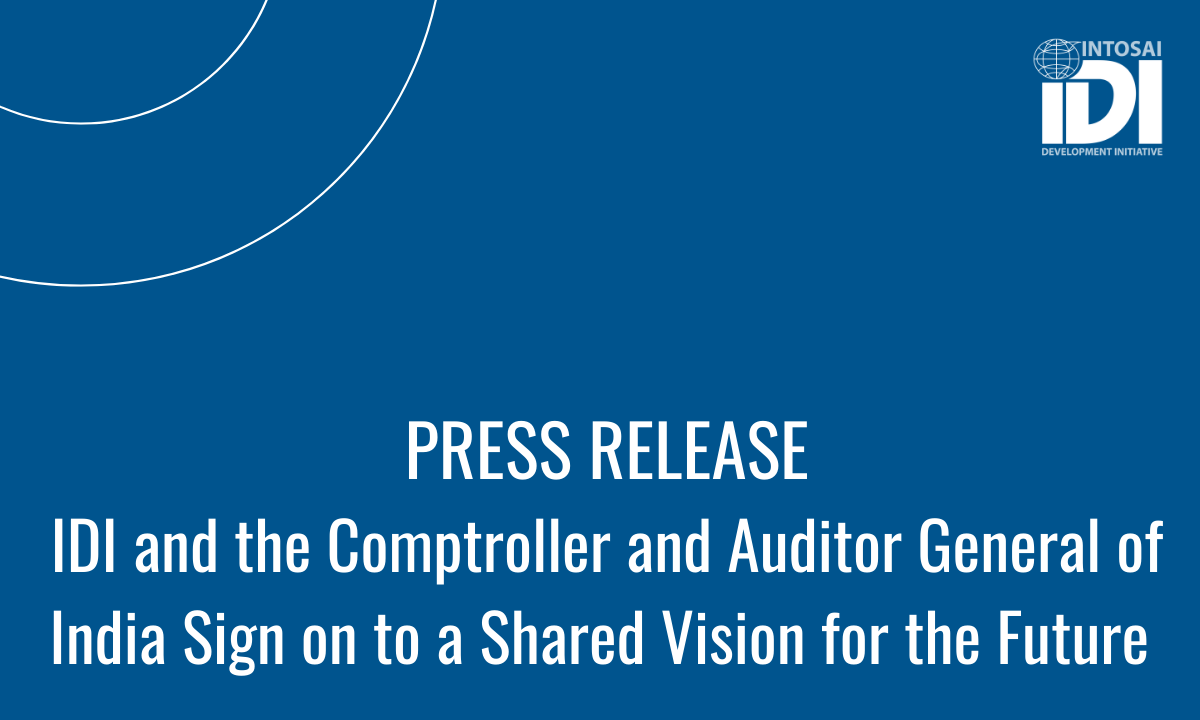CCAA – Global Cooperative Audit of Climate Change Adaptation Actions
The entire world is facing an unprecedented global climate crisis
The 2015 Paris Agreement from 2015 aims to limit global warming well below 2° C with a goal of 1.5° C above pre-industrial levels. This goal is crucial to prevent irreversible damage to nature and society. However, the Intergovernmental Panel on Climate Change (IPCC) has warned that without immediate emissions reductions, limiting global warming is beyond reach. As noted by the IPCC, “The rise in weather and climate extremes has led to some irreversible impacts as natural and human systems are pushed beyond their ability to adapt”.

Many SAIs have already recognized the risks that climate change poses to their society and economy. In a recent INTOSAI Working Group on Environmental Auditing (WGEA) survey, respondents put climate change adaptation as the number one environmental audit topic for future audits. Climate change was also identified as a high priority trend in INTOSAI Development Initiative’s (IDI) futures and foresight work.

Climate change is a key issue in developing countries and especially Small Island Developing States (SIDS). Several SIDS are already facing critical problems due to climate change such as coastal erosion and flooding, leading to human suffering and irreversible changes in the ecosystem and local biodiversity of these states. Adaptation measures are needed for all countries – based on their local contexts and existing and anticipating future climate-related problems.

The national government’s role in adopting adaptation measures is crucial as droughts, flooding, water resource depletion, and coastal erosion are becoming more common. One of the ways in which SAIs could provide a relevant audit response would be to examine the government’s efforts to adapt to climate change. In addition, adaptation must be planned well to avoid maladaptation that could lock in unfavourable development for a long time.
Our Partner
The INTOSAI Development Initiative (IDI) works closely with the INTOSAI Working Group on Environmental Auditing (WGEA) to strengthen the environmental auditing capacity of Supreme Audit Institutions (SAIs). Together, we have launched the Climate Change Adaptation Audit (CCAA) Initiative, a cooperative audit programme focused on assessing national climate change adaptation efforts.
We are thankful to WGEA for their strong partnership.


1 Ms Mami Mizutori, UNDRR, on launch of IDI WGEA CCAA

Dr S Maharaj, IPCC on launch of CCAA

3 Dr Youssef Nassef, UNFCC, on launch of CCAA



